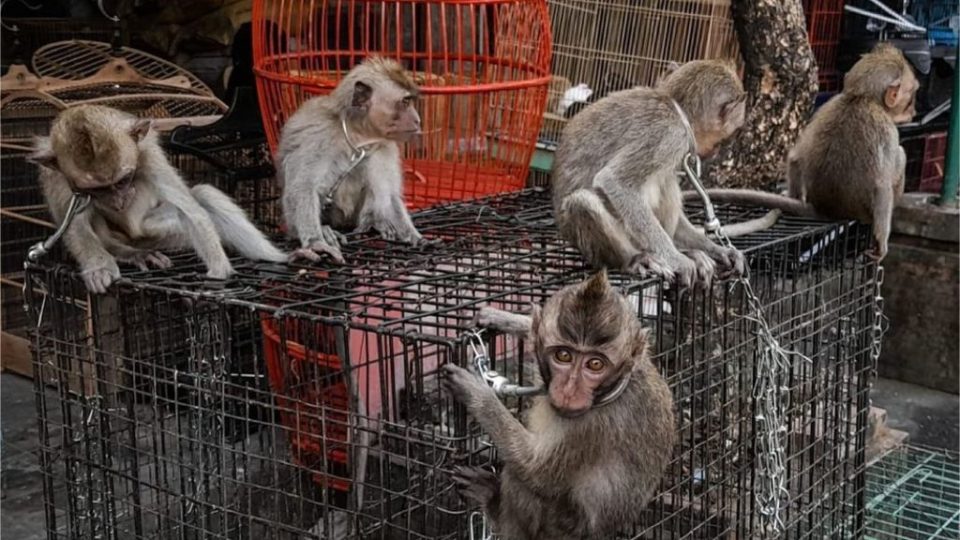Authorities say they are having a hard time enforcing the law on wildlife trade at Satria Bird Market in Denpasar, after an animal rights organization urged officials to step up and save baby primates from being sold as pets.
“For the trade of this baby primate, BKSDA is facing difficulties in monitoring because the species are small, tame, and easy to hide,” BKSDA Bali said in a statement shared with Coconuts.
As long-tailed macaques are not protected under Indonesian laws, the 1990 Conservation Law is therefore inapplicable in this case, he said.
“The perpetrators of this wildlife trade can only be charged with animal abuse under the Criminal Code (KUHP). But there must be irrefutable evidence of abuse,” Agus said.
The Jakarta Animal Aid Network (JAAN) previously called on Indonesian authorities to intervene in the ongoing sales of baby primates at Satria, revealing that the species have been openly sold there monthly. Though long-tailed macaques are not a protected species according to Indonesian law, the organization noted that they are recognized as a “vulnerable” species internationally.
In the last two months, JAAN said Indonesian authorities confiscated 36 baby primates that were en route to being shipped to Java and Bali, which illustrates “how big the problem is.”
JAAN had highlighted that long-tailed macaques are “not suitable to be kept as a pet,” in contrast with BKSDA Bali’s statement that the baby primates “might be safer and prosperous if kept by humans, rather than deprived of feed and killed by other monkeys in the wild.”
BKSDA also said that abuse against this type of monkey is “extremely rare” in Bali because many believe that they descended from the Hindu god Hanuman.
Furthermore, authorities say conducting raids for this type of animal is “extremely inefficient,” adding that the conservation value and the criminal weight is not comparable to the operational and treatment cost if the animals were to be confiscated.




